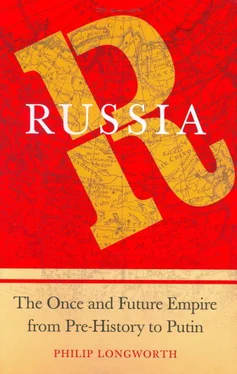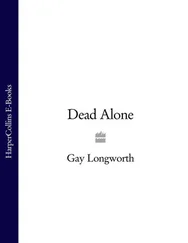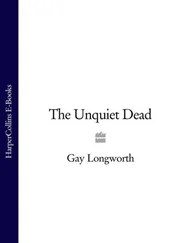Yet this same fierce, empowered Olga is now revered as a saint, for she became a Christian as well as an historical figure of the first importance. 9Her conversion was prompted by political calculation as well as by spiritual yearning, however. She proved a good and energetic organizer, doing away with the anarchic, ad-hoc, ways of raising taxes which had provoked the Derevlians. She regularized the amount of tribute to be paid — whether in honey, furs or feathers — and journeyed extensively along the main tributaries of the Dnieper, seeing that her order was imposed on the inhabitants. She also visited Novgorod, where she set up an administrative centre. Her reforms have been represented as marking a transition from the ways of a robber economy to a regime based on norms. If so, they were a significant contribution to state-building. 10
The Viking elite were fast losing their Nordic identity as they intermarried with their Rus tributaries. In any case, they were too few to build a state alone. They needed local knowledge and men to organize an economy, to gather in food and marketable goods like honey, furs and slaves on a systematic basis. The indigenous chiefs organized the provision of these things for them. But, just as the Vikings needed the chiefs, the chiefs needed them — for their military prowess and their knowledge of the wider world. The first Russian state was founded on the interdependence of a group of sea-going colonizers and tribes of Slavonic-speakers who used the rivers as avenues for colonization. Intermarriage cemented the alliance and extended the ruling family. At the same time the Scandinavian element was fast being absorbed linguistically and culturally into the Slavonic-speaking mass, though characteristic Scandinavian burial mounds have been found in central Russia from up to a century after Vikings and Slavs established their alliance. 11
In 941 Prince Igor, son of Olga, mounted another large-scale raid on Constantinople. Only this time the previous successes were not to be repeated. The imperial forces were prepared, and were able to exploit their superior technology — ships equipped with rams, grappling chains and a devastating secret weapon known as ‘Greek fire’, an incendiary device containing naphtha, one form of which ignited on contact with water. Scholars do not yet know how it was launched, but it could be extremely effective. Invented in the late 600s, Greek fire had helped save much of the Empire from the Arabs. Had the Emperor been able to deploy it in 860 or against Oleg in 907, the city might have been spared the depredations of the Viking-led Russians. Presumably sheer surprise or unfavourable weather or water conditions prevented its use. But now the weapon was deployed with devastating effect. A graphic account written by a Western envoy about a century afterwards reflects the memory of the great victory:
Having become surrounded by the Rus’, the Greeks [that is, the subjects of the Emperor] hurled their fire all around them. When the Rus’ saw this, they at once threw themselves from their ships into the sea, choosing to be drowned by the waves rather than cremated by the fire. Some, weighed down by their breastplates and helmets… sank to the bottom… Others were burned as they swam on the waves.
No one could escape except by sailing into the shallow inshore waters where the deep-draughted imperial ships could not follow. 12
An apparently earlier source, a Viking saga, records the same traumatic event from the raiders’ point of view, and with some convincing detail. It tells, for example, of a brass tube from which a great spark flew to reduce one of the ships of its pagan hero Yngvar to ashes within seconds. This story, however, was to be changed under Christian influence to put Yngvar on the right side and cast the Emperor as a villainous creature. In this version Greek fire assumes the form of Jakulus, a terrifying flying dragon which spits venom, to which Yngvar has an antidote: arrows bearing ‘consecrated flame’. 13
Byzantine diplomats eventually persuaded Igor/Yngvar and the Rus that they could gain more from negotiation and trade than from naked force. Certainly, by the time the Emperor Constantine VII wrote his account of the Russians in the middle of the tenth century a regular commercial relationship had been established between them. Cargoes of slaves would be brought in for sale in Constantinople’s market, and, once their summer’s venturing was over, the Russian traders would return to Kiev until November, when they would disperse in various directions upstream to the regions they had come from.
The severe manner of life of these same Russians in winter-time is as follows. When the month of November begins, their chiefs together with all the Russians [that is, the Vikings and the Russian tribal chiefs associated with them] go off on… [their] ‘rounds’, that is to the Slavonic regions of the Vervians and Drugovichians and Krivichians and Serverians and the rest of the Slavs who pay… [them] tribute. There they are maintained throughout the winter, but then once more, starting in the month of April, when the ice on the Dnieper river melts, they come back to Kiev… 14
And the cycle would begin again.
The organizational centre had moved from Novgorod to Kiev. Even so the frontiers were too stretched and the strategic points too scattered for one man to control the entire operation effectively. 15Kings of England would take their courts on tour round their domains, but in Russia this was impracticable — the distances too great, the climate too difficult. To overcome this difficulty, the first Russian state devised a working system more like a family business. Riurik’s successors ruled in Kiev, their heirs apparent in Novgorod, while younger brothers and other close relatives ruled centres like Smolensk or Chernigov, according to their seniority and the town’s relative importance. Family could be trusted, and the system (often termed ‘apanage’) had the advantage of giving future rulers experience of governing an important region before acceding to the top position. However, though the system had advantages in co-ordinating commercial operations on a basis of trust, it had disadvantages in respect of the integrity of a state. In Russia the system was to break down in the twelfth century, largely, as we shall see, because of its inherent weaknesses. This has led some historians to argue that Kievan Rus was not a state at all. 16
However, the subjects of Kievan Rus paid taxes, they were defended from outside enemies, and they were subject to common laws. These characteristics qualify Kievan Rus as no less a state than some other imperfect political structures of that age. The particular problem of Kievan Rus was that, though imperial in territorial extent, it lacked appropriate imperial institutions. But it soon began to import models and ideals to remedy these deficiencies. The source was the city of Constantinople, and one of the chief carriers of this late Roman influence to Russia was the same Princess Olga who had massacred the Derevlian elite and imposed a semblance of administrative order on the Rus.
Olga travelled to Constantinople in 955 or 957 (the sources differ on the date), and the imperial authorities there, impressed with Russia’s potential, laid down a red carpet for her. She was taken to view the many wonders of the imperial city — the three fortified walls which guarded it; the great cistern which could supply the large population with water in the event of a long siege; the hippodrome, which was used for imperial ceremonies as well as for games and racing. The city’s central market sold every imaginable commodity from every corner of the world. This scene of plenty was presided over by a great column surmounted by the gilded head of the city’s founder, the first Christian emperor, Constantine I. The city’s fine marble buildings and statues, wonderfully carved, and the extraordinary variety of peoples and dress amazed all who saw them for the first time. But only special guests entered the imperial palace. Olga was so privileged.
Читать дальше





![Stephan Orth - Behind Putin's Curtain - Friendships and Misadventures Inside Russia [aka Couchsurfing in Russia]](/books/415210/stephan-orth-behind-putin-s-curtain-friendships-a-thumb.webp)





